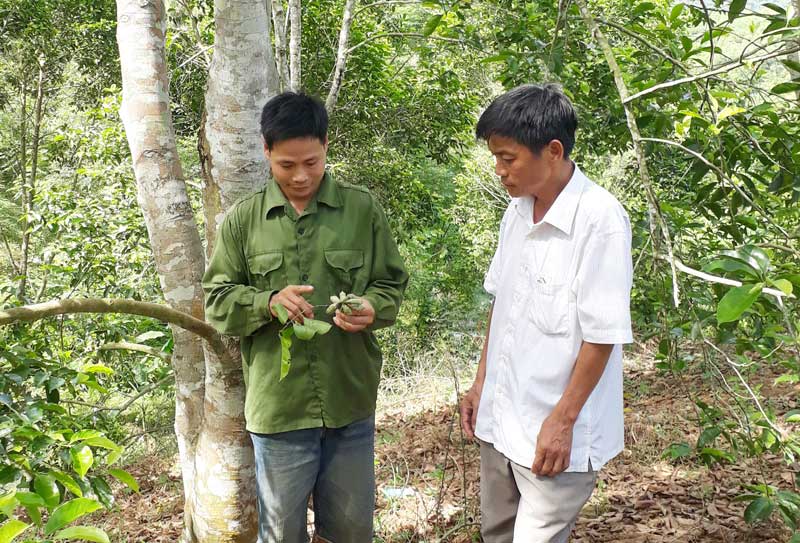


A Doi garden is located on Roc Trau
hill,

Grafting Doi trees opens up a new way to get rich for Quach Phien (L) in
Chieng hamlet, Phuc Tuy commune, Lac Son district.
It takes just three or four years for
grafted Doi trees to produce fruits while the traditional way takes seven or
eight years. This is a promising way, Phien said, adding that he learnt to
graft Doi trees by himself, with the successful rate now reaching 80 percent.
Fifty grafted Doi trees, which were planted
four years ago, are developing well. The land here is fertile and suitable for
growing Doi trees. They have flowers and fruits right in the third year. Last
year, Phien sold fresh Doi nuts at 600,000 VND (24 USD) per kilogramme, and
dried Doi nuts at 2 million VND (88 USD) per kilogramme, earning over 100
million VND (4,400 USD) from his garden. This year, the trees bear plentiful
fruits, and promise a same value, Phien said.
The Doi trees are developing well
among the Acacia forest. Phien is excited when talking about his Doi trees,
though he regretted for planting them a little too thick. Doi trees should be
planted seven metres away from each other to enable their branches to stretch,
Phien said, adding that he has planted an additional 300 grafted Doi trees and targets
to plant 500 trees this year.
To ensure the quality of grafted Doi
trees, Phien had to select those with many fruits and good development to graft
with other trees. His 50 four-year-old Doi trees offer a huge source. Seeing
his success, many local residents bought seedlings from Phien and now have also
well-developed Doi gardens. Phien plans to expand his Doi garden to supply for
the market.
Besides Doi nuts, Phien also raises
chickens in the garden and earns a stable income. Grafting Doi trees has opened
up a new way for Phien to get rich right in his homeland. This is a promising
livelihood for local residents as many have learnt from Quach Phien to shift
their mixed gardens to Doi trees.